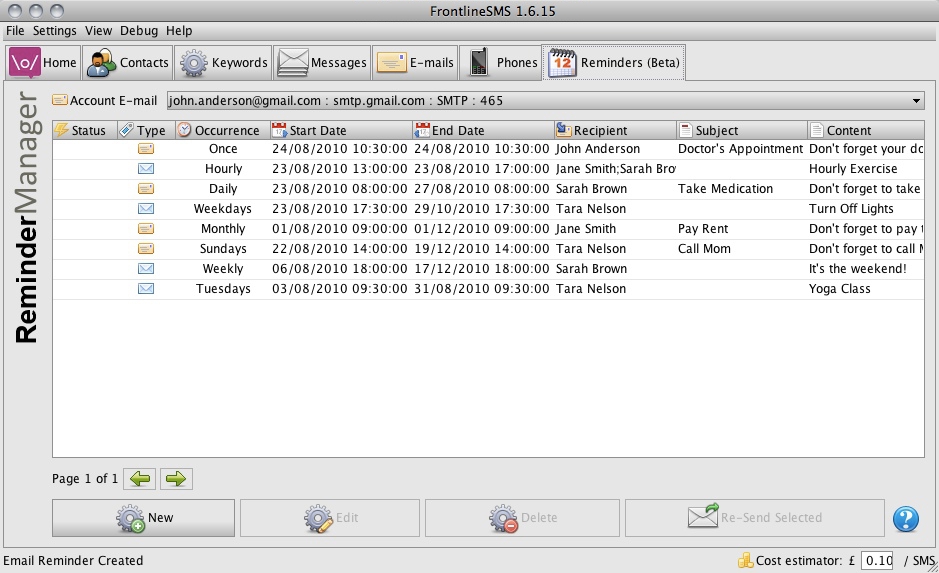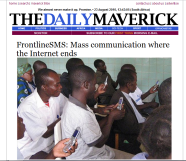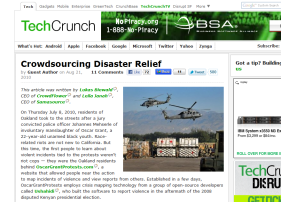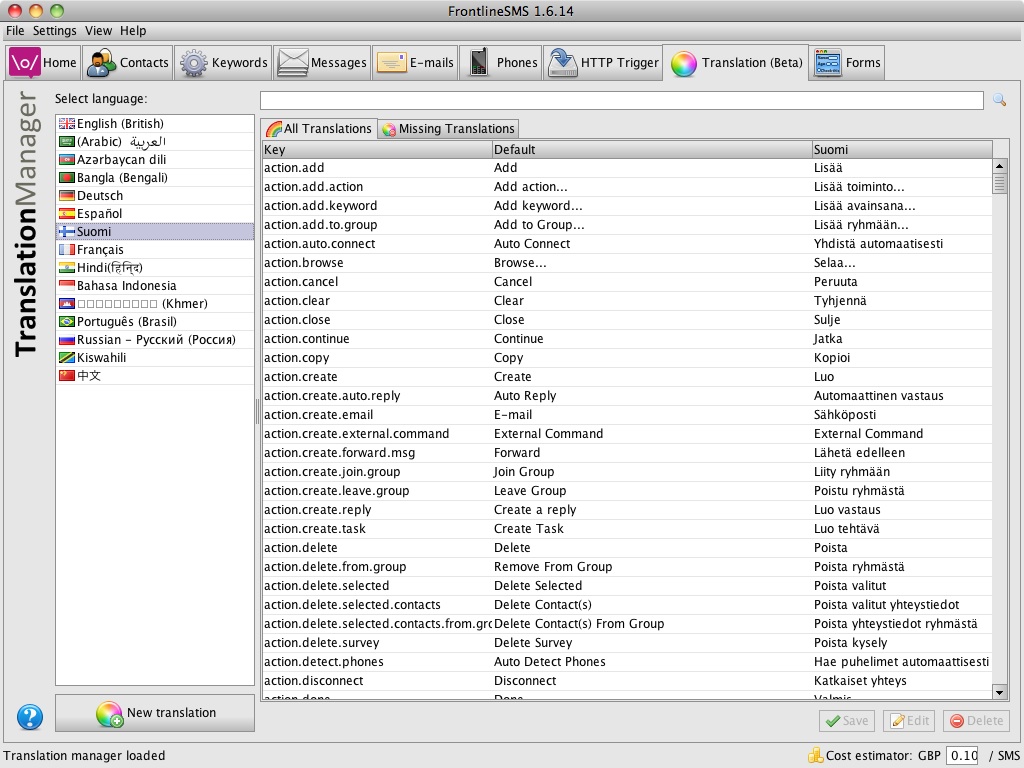Today, we're very pleased to announce a new FrontlineSMS release - version 1.6.16, to be precise - with two major new features: MMS receiving and the Reminders module!

With this release, FrontlineSMS allows you to receive multimedia messages via a standard email account. More complex than SMS messages, MMS can include text, images, video and audio. This is a massive step forward for FrontlineSMS, and opens the door for the first time to receiving photo, audio and video reports, medical diagnostics via MMS…and more user innovations. We hope you will share your ideas, and if you plan to use MMS with FrontlineSMS please let us know!
For the moment, FrontlineSMS can only receive MMS via email, which requires the computer running the platform to have access to the internet. However, most mobile carriers worldwide support sending MMS from a mobile phone to an email address. Read more on our updated help pages.
Another keenly awaited new feature is the Reminders plugin from Dale Zak, which allows you to schedule email and SMS reminders for a specific date range and interval such as hourly, daily, weekly, monthly or by specific day(s) of the week.
Examples of practical applications include prompting patients to take anti-retroviral medication, reminding parolees to meet with probation officers, and helping special needs populations to live independently. Already, Babakan Sari Community Health Center in Indonesia has expressed enthusiasm for using the new feature for outreach to Tuberculosis patients.
Many of you are familiar with Dale - he is an active social mobile developer who also works as Mobile Project Manager for Ushahidi. The reminders plugin source code has been available on GitHub for some time for those of you with the developer skills to incorporate it into FrontlineSMS. Now we are delighted to bundle it with this official release. It's still in Beta, which means we want our users to actively test it. Please let us know if you encounter bugs and (as ever) we welcome your feedback and comments on how we can make improvements. We think the Reminders plugin illustrates the heart of the FrontlineSMS approach - by the community, for the community.
We are also happy announce significant interface improvements to the import tool by Morgan Belkadi, to enable you to preview the contacts data you're importing and to preserve your group hierarchies - check out this screenshot of our beautiful new preview tool:
The HTTP trigger is getting a tweak too - it is now possible to set it to start automatically when you launch FrontlineSMS. And last but not least, we're very grateful to be including a new Ukrainian translation from Katerina Ivchenko and Aleksei Ivanov.
Click here to go to the download page.
This release has truly been a team effort - from the users who sent in MMS during testing, to our developers and testers all over the world, to the core team and the donors who make this all possible. Heartfelt thanks to you all. o/





 A group of companies, including Ushahidi, FrontlineSMS, CrowdFlower and Samasource, collaborated to set up a text message hotline – “Mission 4636” – supported by the U.S. Department of State. The Haitian government collaborated with radio stations to advertise the hotline, and a few days after the disaster, anyone in Port-au-Prince could send an SMS to a toll-free number, 4636, to request help. The messages were routed to relief crews at the U.S. Coast Guard and the International Red Cross on the ground.
A group of companies, including Ushahidi, FrontlineSMS, CrowdFlower and Samasource, collaborated to set up a text message hotline – “Mission 4636” – supported by the U.S. Department of State. The Haitian government collaborated with radio stations to advertise the hotline, and a few days after the disaster, anyone in Port-au-Prince could send an SMS to a toll-free number, 4636, to request help. The messages were routed to relief crews at the U.S. Coast Guard and the International Red Cross on the ground.



